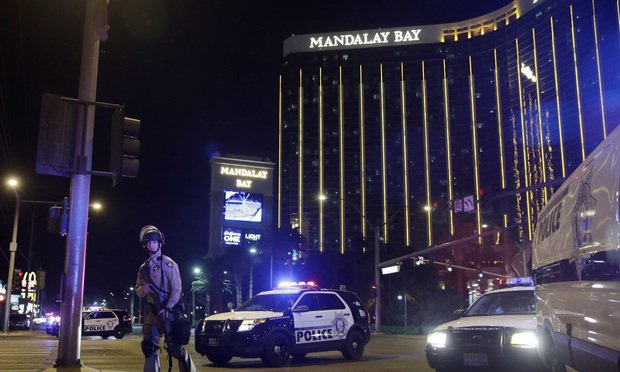 In this Oct. 1, 2017, file photo, police officers stand along the Las Vegas Strip near the Mandalay Bay resort and casino during a shooting at a country music festival, in Las Vegas. (Photo: AP Photo/John Locher)
In this Oct. 1, 2017, file photo, police officers stand along the Las Vegas Strip near the Mandalay Bay resort and casino during a shooting at a country music festival, in Las Vegas. (Photo: AP Photo/John Locher)
MGM Resorts International has filed nine lawsuits across the country against 2,500 victims of the Oct. 1, 2017, mass shooting in Las Vegas in an unprecedented move that had plaintiffs lawyers accusing the entertainment conglomerate of forum shopping and defense lawyers scratching their heads.
Recommended For You
Want to continue reading?
Become a Free PropertyCasualty360 Digital Reader
Your access to unlimited PropertyCasualty360 content isn’t changing.
Once you are an ALM digital member, you’ll receive:
- Breaking insurance news and analysis, on-site and via our newsletters and custom alerts
- Weekly Insurance Speak podcast featuring exclusive interviews with industry leaders
- Educational webcasts, white papers, and ebooks from industry thought leaders
- Critical converage of the employee benefits and financial advisory markets on our other ALM sites, BenefitsPRO and ThinkAdvisor
Already have an account? Sign In Now

